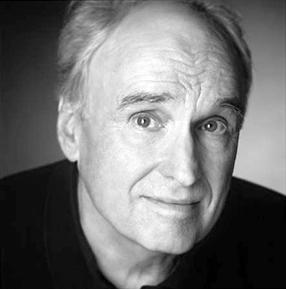 In a workshop once, Marie Howe suggested: write a poem from the point of view of someone who throws trash out the car window. Nobody could. But here Frank Bidart manages a harder task–write a poem in the voice of a pedophile.
In a workshop once, Marie Howe suggested: write a poem from the point of view of someone who throws trash out the car window. Nobody could. But here Frank Bidart manages a harder task–write a poem in the voice of a pedophile.
Herbert White
“When I hit her on the head, it was good,
and then I did it to her a couple of times,—
but it was funny,—afterwards,
it was as if somebody else did it…
Everything flat, without sharpness, richness or line.
Still, I liked to drive past the woods where she lay,
tell the old lady and the kids I had to take a piss,
hop out and do it to her…
The whole buggy of them waiting for me
made me feel good;
but still, just like I knew all along,
she didn’t move.
When the body got too discomposed,
I’d just jack off, letting it fall on her…
—It sounds crazy, but I tell you
sometimes it was beautiful—; I don’t know how
to say it, but for a minute, everything was possible—;
and then,
then,—
well, like I said, she didn’t move: and I saw,
under me, a little girl was just lying there in the mud:
and I knew I couldn’t have done that,—
somebody else had to have done that,—
standing above her there,
in those ordinary, shitty leaves…
—One time, I went to see Dad in a motel where he was
staying with a woman; but she was gone;
you could smell the wine in the air; and he started,
real embarrassing, to cry…
He was still a little drunk,
and he asked me to forgive him for
all he hadn’t done—; but, What the shit?
Who would have wanted to stay with Mom? with bastards
not even his own kids?
I got in the truck, and started to drive,
and saw a little girl—
who I picked up, hit on the head, and
screwed, and screwed, and screwed, and screwed, then
buried,
in the garden of the motel…
—You see, ever since I was a kid I wanted
to feel things make sense: I remember
looking out the window of my room back home,—
and being almost suffocated by the asphalt;
and grass; and trees; and glass;
just there, just there, doing nothing!
not saying anything! filling me up—
but also being a wall; dead, and stopping me;
—how I wanted to see beneath it, cut
beneath it, and make it
somehow, come alive…
The salt of the earth;
Mom once said, ‘Man’s spunk is the salt of the earth…’
—That night, at that Twenty-nine Palms Motel
I had passed a million times on the road, everything
fit together; was alright;
it seemed like
everything had to be there, like I had spent years
trying, and at last finally finished drawing this
huge circle…
—But then, suddenly I knew
somebody else did it, some bastard
had hurt a little girl—; the motel
I could see again, it had been
itself all the time, a lousy
pile of bricks, plaster, that didn’t seem to
have to be there,—but was, just by chance…
—Once, on the farm, when I was a kid,
I was screwing a goat; and the rope around his neck
when he tried to get away
pulled tight;—and just when I came,
he died…
I came back the next day; jacked off over his body;
but it didn’t do any good…
Mom once said:
‘Man’s spunk is the salt of the earth, and grows kids.’
I tried so hard to come; more pain than anything else;
but didn’t do any good…
—About six months ago, I heard Dad remarried,
so I drove over to Connecticut to see him and see
if he was happy.
She was twenty-five years younger than him:
she had lots of little kids, and I don’t know why,
I felt shaky…
I stopped in front of the address; and
snuck up to the window to look in…
—There he was, a kid
six months old on his lap, laughing
and bouncing the kid, happy in his old age
to play the papa after years of sleeping around,—
it twisted me up…
To think that what he wouldn’t give me,
he wanted to give them…
I could have killed the bastard…
—Naturally, I just got right back in the car,
and believe me, was determined, determined,
to head straight for home…
but the more I drove,
I kept thinking about getting a girl,
and the more I thought I shouldn’t do it,
the more I had to—
I saw her coming out of the movies,
saw she was alone, and
kept circling the blocks as she walked along them,
saying, ‘You’re going to leave her alone.’
‘You’re going to leave her alone.’
—The woods were scary!
As the seasons changed, and you saw more and more
of the skull show through, the nights became clearer,
and the buds,—erect, like nipples…
—But then, one night,
nothing worked…
Nothing in the sky
would blur like I wanted it to;
and I couldn’t, couldn’t,
get it to seem to me
that somebody else did it…
I tried, and tried, but there was just me there,
and her, and the sharp trees
saying, ‘That’s you standing there.
You’re…
just you.’
I hope I fry.
—Hell came when I saw
MYSELF…
and couldn’t stand
what I see…”
Frank Bidart
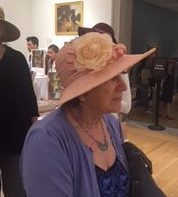
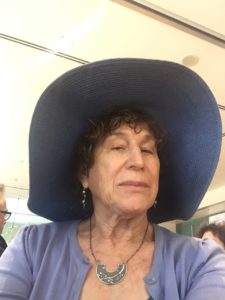
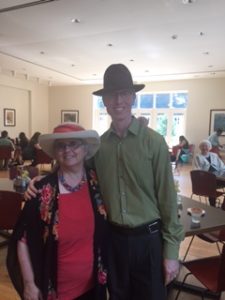
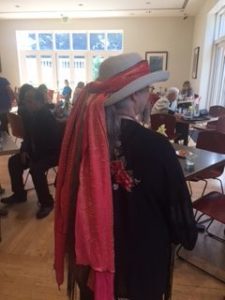
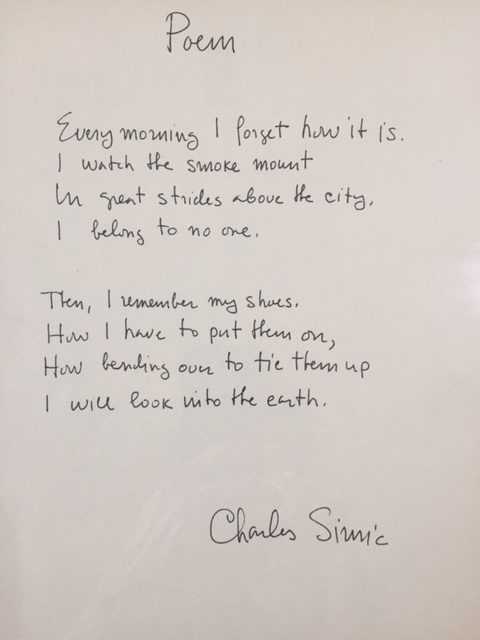
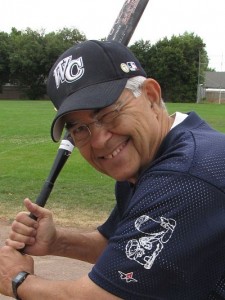 Larry quoted this to me today: “In the word ‘scene,’ is it the c or the s that’s silent?”
Larry quoted this to me today: “In the word ‘scene,’ is it the c or the s that’s silent?” A fellow poet recommended his work to me, and I have been reading his book, Dancing in Odessa. Here’s a poem from that book that I really like:
A fellow poet recommended his work to me, and I have been reading his book, Dancing in Odessa. Here’s a poem from that book that I really like: